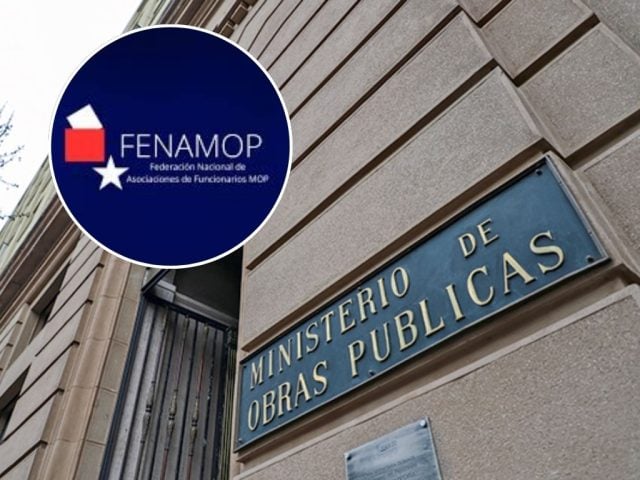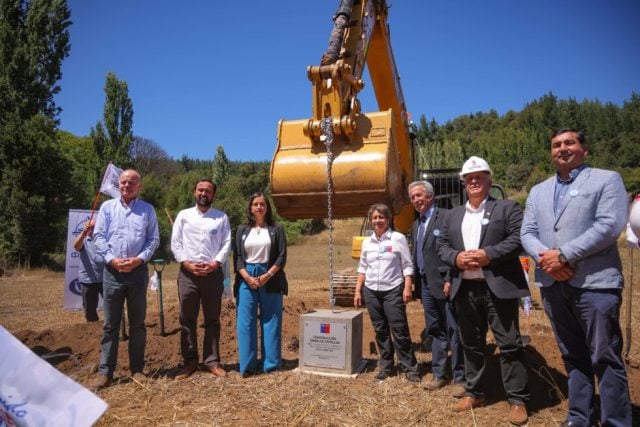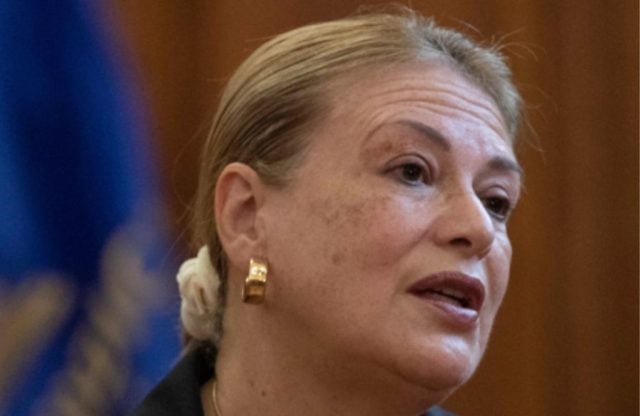The National Federation of Associations of Officials of the Ministry of Public Works (FENAMOP) has accused the agency of an arbitrary dismissal and a violation of the rights of staff member Anahí Contreras Chacón.
Contreras was a contracted professional with the Directorate of Port Works (DOP) when, in June 2025, she reported alleged conduct constituting workplace violence and harassment. Notably, the complaint was filed in line with procedures set out by the Karin Law and the internal protocols of the Ministry of Public Works (MOP).
Speaking with El Ciudadano, Horacio Gálvez, President FENAMOP, said: “The employee dared to file a complaint through an email set up by the Ministry of Public Works called the VALS complaint channel. To submit a complaint, you must complete a form identifying the person reported and the facts that constitute violence, harassment, etc. In that filing, Anahí submitted evidence—images, audio recordings, and WhatsApp conversations—that pointed to potential violence she was experiencing,” Gálvez stated.
Initially, the VALS Technical Complaints Unit recommended deeming the complaint admissible and, before deciding whether to open a disciplinary process, proposed conducting a psychosocial risk assessment.
Gálvez noted that a confidential memo stated a psychosocial report should be prepared and that “before weighing the start of a disciplinary process, we recommend a psychosocial report be conducted. But it does not say a disciplinary process should not proceed; in fact, it proposes considering the complaint. It is a recommendation they made.”
Despite that, on August 28 of this year, the DOP issued Exempt Resolution No. 1072, declaring the complaint inadmissible, relying mainly on a psychosocial report that, according to FENAMOP, did not meet the technical or legal standards required for these procedures.
“The Directorate of Port Works produced this report, signed by the head of people management together with a psychologist, but the report does not address the level of harm; it is not a technical report. If you read it, it speaks to preventive actions—something unrelated to a case where violence is already occurring,” Gálvez warned.
The federation president added that “at the end of the report, they also opine on the summary investigation and explicitly state: ‘there is not sufficient background to initiate a disciplinary process via VALS.’ However —and this is technical— the psychosocial report should not opine on that, because the details of the complaint are confidential and known only to the VALS officer who receives it and, of course, the director who must assess whether to initiate a summary process.”
Subsequently, on August 29, the employee was verbally notified of the early termination of her contract, which was formalized on September 1 through RA DOP Resolution No. 88/61/2025. That same day, Contreras filed a new complaint based on the same evidence submitted in June.
Later, on September 12, the National Director informed her via certified letter that the September 1 complaint had been admitted. For the federation, this represents a serious institutional contradiction and underscores the need to review the legality of the administrative actions involved, given that both complaints were identical.
FENAMOP denounced a series of violations, including the dismissal during the complainant’s legally protected period, which would violate Article 90 A of the Administrative Statute and Law 21.643; and the improper use of preventive instruments as a basis to deem the complaint inadmissible, in contravention of DS No. 21/2024 and MOP Exempt Resolution No. 340/2024.
They also argued that the recommendation issued by the VALS Technical Complaints Unit was ignored without technical justification; that the challenged administrative act lacked proper reasoning and impartiality, breaching Articles 11 and 41 of Law No. 19.880; and, finally, that there was an apparent act of retaliation by linking inadmissibility with dismissal, which would have restricted the right to a defense and run counter to protective principles.
For Gálvez, the facts amount to a form of “institutional mistreatment,” because once the complaint was filed, the necessary support was not provided. “I told the undersecretary: this is putting a foot down—it sets a precedent for all Port Works staff. The message from the authorities is: anyone who dares to report through VALS will be sent home if they lack legitimate expectation. It’s a bad signal for public servants and it harms us all,” he said.
Finally, FENAMOP warned that this case “represents a serious violation of labor, gender, and whistleblower protection rights in the public sector,” and further said it calls into question compliance with the Karin Law and the State’s institutional protocols.










